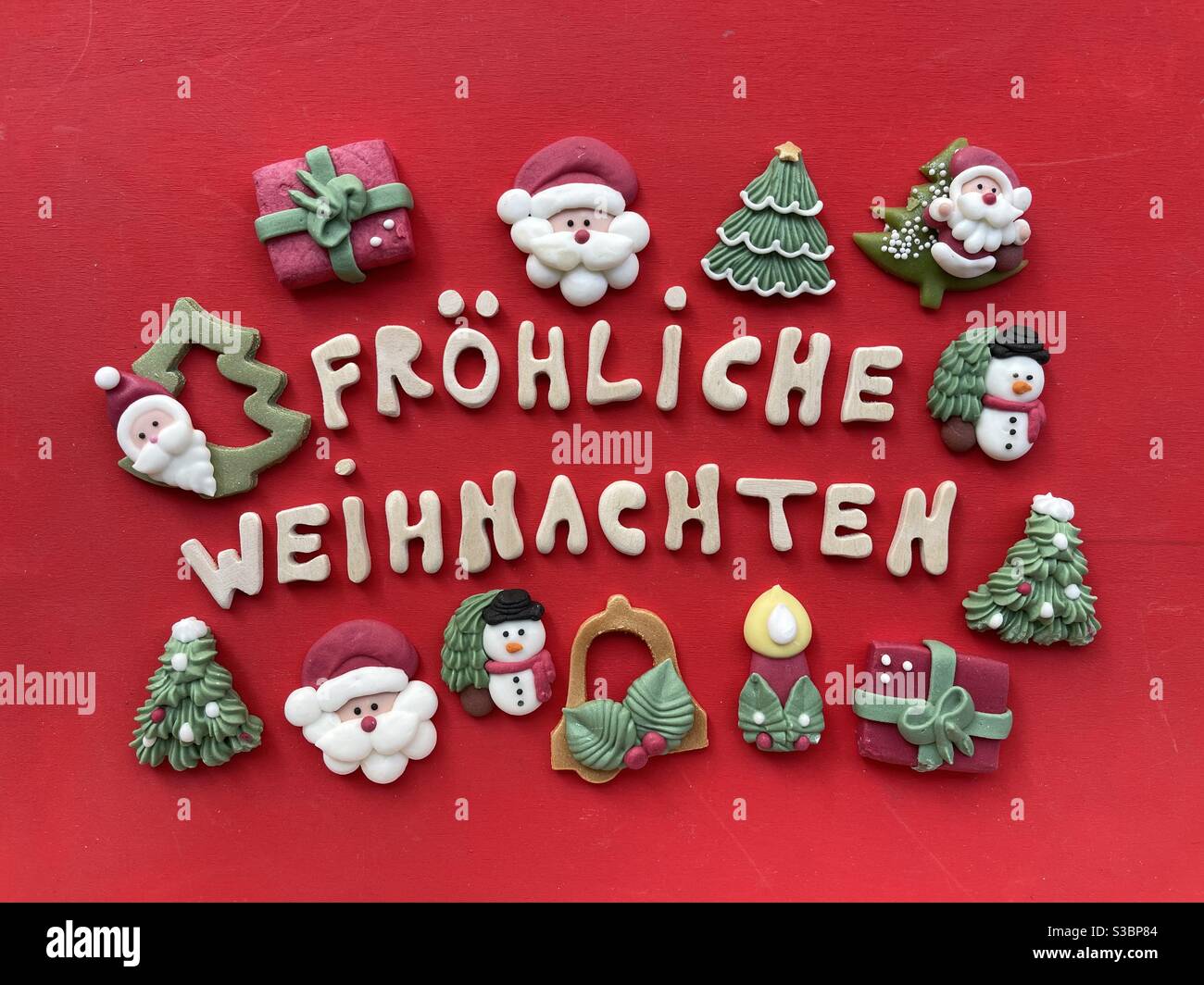The German Language Of Christmas: A Deep Dive Into "Weihnachten"
The German Language of Christmas: A Deep Dive into "Weihnachten"
Related Articles: The German Language of Christmas: A Deep Dive into "Weihnachten"
Introduction
With enthusiasm, let’s navigate through the intriguing topic related to The German Language of Christmas: A Deep Dive into "Weihnachten". Let’s weave interesting information and offer fresh perspectives to the readers.
Table of Content
The German Language of Christmas: A Deep Dive into "Weihnachten"

The festive season, with its twinkling lights, carols, and joyous gatherings, is a universal celebration. However, each culture imbues this time with its unique traditions, customs, and, of course, language. In the German-speaking world, Christmas is known as "Weihnachten," a word that encapsulates the essence of the holiday and reflects the historical and cultural significance of this time in German society.
Unpacking the Etymology of "Weihnachten"
The word "Weihnachten" itself holds a fascinating history. It is a compound word, derived from the Old High German "wih" (meaning "holy" or "sacred") and "nahte" (meaning "night"). Thus, "Weihnachten" literally translates to "holy night," a powerful and evocative term that captures the spiritual essence of Christmas.
The term "Weihnachten" emerged in the 14th century, replacing older terms like "Christes Geburt" (Christ’s birth) and "Heilig Abend" (Holy Evening). This shift reflects the growing importance of the Christmas season in German culture and the evolving role of the Church in shaping societal values.
Beyond the Literal: Cultural Context and Significance
While "Weihnachten" literally translates to "holy night," its meaning extends far beyond this simple definition. It encompasses a complex web of traditions, customs, and cultural significance deeply ingrained in German society.
The Importance of Family and Tradition:
"Weihnachten" is a time for families to come together. The holiday is synonymous with the warmth of home, the comfort of loved ones, and the joy of sharing traditions passed down through generations. From the elaborate Christmas Eve dinners to the exchange of gifts and the singing of carols, "Weihnachten" reinforces the importance of family unity and the passing of cultural heritage.
The Spirit of Giving and Sharing:
The spirit of giving is central to "Weihnachten." The holiday is a time to express gratitude, generosity, and kindness. The act of giving gifts, known as "Geschenke," symbolizes the sharing of love, affection, and appreciation. This emphasis on giving fosters a sense of community and strengthens social bonds.
The Significance of the Christmas Market:
The "Weihnachtsmarkt" or Christmas market is an integral part of "Weihnachten" in Germany. These bustling marketplaces, filled with festive decorations, twinkling lights, and the aroma of roasted nuts and Glühwein, offer a unique sensory experience. They provide a platform for local artisans and vendors to showcase their wares, promoting local businesses and fostering community spirit.
The Religious Undertones of "Weihnachten":
While the secular aspects of "Weihnachten" are prominent, the religious roots of the holiday remain significant. The birth of Jesus Christ is celebrated with church services, readings of the Christmas story, and the singing of traditional carols. This religious aspect adds a layer of solemnity and spirituality to the festive season.
"Weihnachten" in Modern Germany:
In contemporary Germany, "Weihnachten" continues to hold a special place in the hearts of many. While secularization has impacted the religious aspects of the holiday, the core values of family, tradition, and giving remain strong. "Weihnachten" remains a time for reflection, celebration, and the strengthening of social bonds.
Exploring the Nuances of "Weihnachten" through FAQs
Q: What is the difference between "Weihnachten" and "Heilig Abend"?
A: "Weihnachten" encompasses the entire Christmas season, from December 24th to January 6th. "Heilig Abend," meaning "Holy Evening," specifically refers to December 24th, the evening before Christmas Day.
Q: What are some common Christmas traditions in Germany?
A: Some common traditions include the Christmas Eve dinner, often featuring roast goose or carp, the opening of presents on Christmas Eve, the singing of carols like "Stille Nacht" (Silent Night), and the decorating of Christmas trees with ornaments and lights.
Q: Is "Weihnachten" a religious holiday in Germany?
A: While "Weihnachten" has religious roots, its celebration is not limited to religious individuals. The holiday has become a cultural event, incorporating both religious and secular traditions.
Q: How is "Weihnachten" celebrated in modern Germany?
A: Modern German celebrations of "Weihnachten" often combine traditional customs with contemporary elements. Family gatherings, gift exchanges, and Christmas markets remain popular, but modern adaptations include incorporating new Christmas songs, incorporating alternative culinary traditions, and embracing diverse cultural perspectives.
Tips for Understanding and Appreciating "Weihnachten"
- Learn some German Christmas carols: Familiarizing yourself with traditional carols like "Stille Nacht" or "O Tannenbaum" can enhance your understanding of the cultural significance of "Weihnachten."
- Visit a Christmas market: Experiencing the festive atmosphere of a "Weihnachtsmarkt" is a great way to immerse yourself in the traditions and spirit of the holiday.
- Learn about German Christmas cuisine: Explore traditional dishes like "Lebkuchen" (gingerbread) or "Stollen" (fruitcake) to gain a deeper understanding of the culinary aspects of "Weihnachten."
- Read about German Christmas folklore and legends: Delve into the rich history of German Christmas traditions, including the origins of Santa Claus (known as "Weihnachtsmann" in Germany) and the symbolism of the Christmas tree.
Conclusion
"Weihnachten" is more than just a word; it is a cultural phenomenon that embodies the spirit of Christmas in Germany. It encapsulates the importance of family, tradition, and giving, while also reflecting the country’s rich history and religious heritage. Understanding the nuances of "Weihnachten" offers a unique window into German culture and provides a deeper appreciation for the universal values that make Christmas a time of joy and celebration worldwide.


:max_bytes(150000):strip_icc()/merry-christmas-and-happy-new-year-4066924-FINAL-5c74670b46e0fb00011bf190.png)





Closure
Thus, we hope this article has provided valuable insights into The German Language of Christmas: A Deep Dive into "Weihnachten". We thank you for taking the time to read this article. See you in our next article!
Leave a Reply